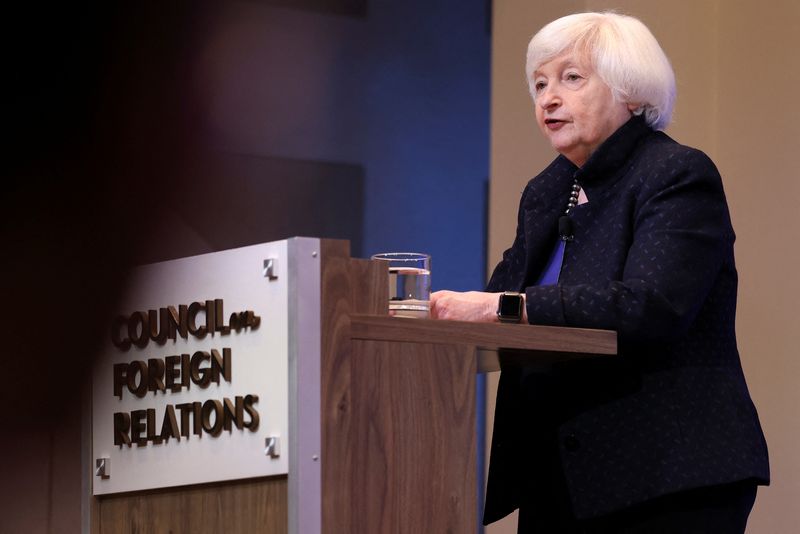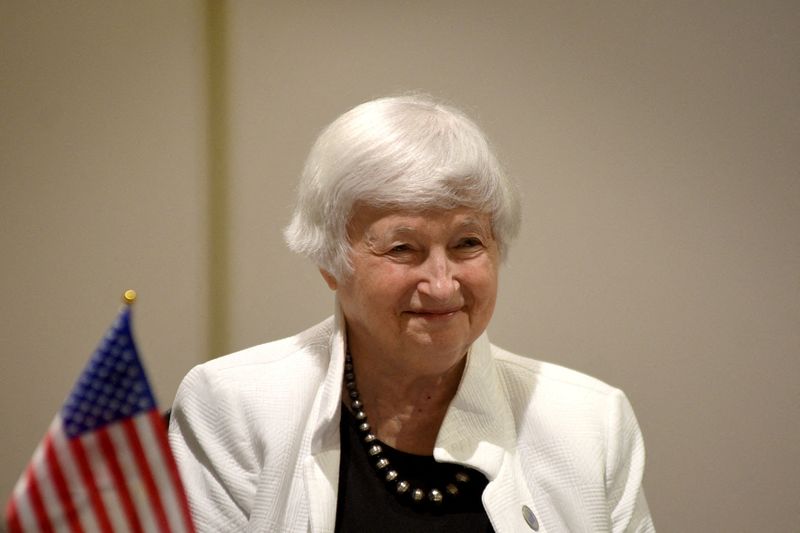By David Lawder
WASHINGTON (Reuters) - U.S. Treasury Secretary Janet Yellen will say on Thursday that walling off the U.S. economy as proposed by Republican presidential candidate Donald Trump would be "deeply misguided," raising prices for American consumers and making U.S. companies less competitive.
Yellen, in excerpts of remarks to be delivered on Thursday afternoon to the Council on Foreign Relations in New York, said that the U.S. cannot afford to return to past unilateral actions to advance its own economic and national security interests.
Yellen did not name Trump specifically, but referred to his calls for steep tariff hikes. Trump has proposed raising tariffs to 10% to 20% on virtually all U.S. imports, and to at least 60% on imports from China, with specific threats of up to 200% on individual companies such as John Deere (NYSE:DE) if they move some production to Mexico.
Trump on Wednesday called tariffs "the most beautiful word in the world," arguing that they would fuel U.S. manufacturing growth.
"Calls for walling America off with high tariffs on friends and competitors alike or by treating even our closest allies as transactional partners are deeply misguided," Yellen said in the CFR excerpts released by the Treasury. "Sweeping, untargeted tariffs would raise prices for American families and make our businesses less competitive."
A "go it alone" approach to foreign and economic policy - like that pursued when Trump was president - would make it virtually impossible to advance U.S. economic and national security interests today, Yellen said, including pressuring Russia over its invasion of Ukraine, improving supply chain security or addressing China's aggressive industrial policies.
Yellen emphasized the need to create a healthier economic relationship with China, but argued against cutting ties to Beijing.
"Trade and investment with China can bring significant gains to American firms and workers and must be maintained," Yellen said. "But we also must have a healthy economic relationship based on a level playing field."
Barriers to market access in China and unfair business practices cause challenges for American firms and workers and for foreign businesses looking to operate in China, Yellen said, adding that these policies were fueling excess industrial capacity in critical industries, threatening the viability of American firms and keeping foreign producers dependent on Chinese supply chains.

Yellen also defended President Joe Biden's steep tariff increases on strategic Chinese imports such as electric vehicles, semiconductors and solar cells, adding that U.S. allies are taking and considering similar steps.
"This growing international consensus is a powerful indication to China that it must shift its practices, she said.
